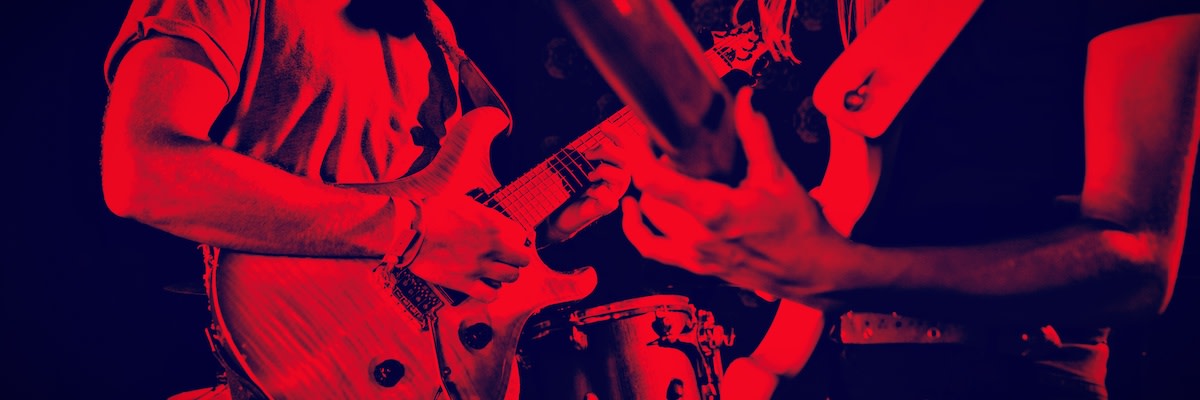Britpop Music Guide: 3 Characteristics of Britpop
Written by MasterClass
Last updated: Jun 7, 2021 • 4 min read
As American grunge music faded from 1990s MTV and FM radio, a new upbeat form of British rock called Britpop quickly took its place.
Learn From the Best
What Is Britpop?
Britpop is a style of guitar-based British rock music that thrived in the United Kingdom and the United States in the 1990s. The leading Britpop bands—Blur, Oasis, Suede, Pulp, Elastica, Supergrass, and the Verve—frequently arose from working-class roots in English cities like London and Manchester.
Britpop music drew inspiration from alternative rock icons like the Smiths, Morrissey, and the Stone Roses. It also drew from early 1980s new wave music, plus classic rock acts like the Beatles and the Kinks.
A Brief History of Britpop
The peak Britpop era took place in the mid-to-late 1990s, but the seeds of the music were sown long before.
- 1980s roots: The term Britpop was invented by 1990s music journalists, but some bands in the Britpop scene had toiled for many years before fame found them. Pulp, for instance, formed in Sheffield in 1978, over a decade before its ’90s commercial peak. The northern city of Manchester housed a 1980s alternative rock scene that some called "Madchester" and featured groups like the Stone Roses, for whom future Oasis leader Noel Gallagher served as a roadie. The La's, an indie pop and alternative rock band from Liverpool, received minimal notice in the 1980s but helped establish the future sound of Britpop with the song “There She Goes.”
- British identity: By the early 1990s, a group of bands with an overtly British identity began to play on MTV and FM radio. Early Britpop successes included Suede, whose singer Brett Anderson channeled the glam androgyny of David Bowie but with a stronger English identity than Bowie (who spent much of his professional life in the United States). The Jarvis Cocker-led Pulp focused on the theme of social status in England with a 1995 record called Different Class and a single called "Common People."
- Blur vs. Oasis: The year 1994 marked a watershed for Britpop thanks to two commercial hits. One was Parklife, the third album from London's Blur, which featured the catchy dance hit "Girls & Boys." The other was Definitely Maybe, the debut album from Manchester's Oasis, which featured the alternative rock staple "Live Forever." While both highly successful, the bands notably feuded through the media. The rivalry between Blur frontman Damon Albarn and Oasis vocalist Liam Gallagher became known as "the battle of Britpop."
- Sustained peak: Britpop performed well for much of the 1990s. In 1995, Oasis followed Definitely Maybe with an even bigger hit, (What's the Story) Morning Glory?, which produced hit singles "Wonderwall" and "Don't Look Back in Anger." Blur enjoyed a garage rock-inspired hit with 1997's "Song 2." Other Britpop bands enjoyed smaller bursts of success, including the Verve, Ocean Colour Scene, Echobelly, Sleeper, Menswear, Supergrass, and the Boo Radleys.
- Post-Britpop: By the late 1990s, Britpop's star had begun to fade. Oasis's third album Be Here Now was panned by many critics, and Blur failed to score massive hits beyond "Song 2." Major British bands that thrived in the post-Britpop era included sonic experimenters Radiohead and radio darlings Coldplay. Smaller bands like Catatonia and Cornershop also thrived by cherry-picking elements of Britpop while expanding beyond the core style.
3 Characteristics of Britpop
Britpop stood out from other 1990s rock music due to several defining characteristics.
- 1. British bands: The Britpop scene was part of a broader 1990s movement called Cool Britannia, where Britain’s artists embraced their national origins.
- 2. Strong classic rock reverence: Britpop groups wore the influence of classic rock on their sleeves. Oasis songwriter and guitarist Noel Gallagher spoke openly of idolizing the Beatles. Blur drew comparisons to new wave groups like Talking Heads and Adam & the Ants. Other influences on the scene included the Kinks, David Bowie, the Smiths (and their lead singer Morrissey), and the Jam (and their singer/guitarist Paul Weller).
- 3. Catchy guitar rock: Britpop groups were, at their core, guitar rock bands. While Britpop was not a scene that emphasized instrumental virtuosity, many of its most famous performers were guitarists. This included Blur's Graham Coxon, Suede's Bernard Butler, Elastica’s Donna Matthews, and Oasis's Noel Gallagher.
5 Notable Britpop Bands
The Britpop scene claimed some of the most prominent bands of the 1990s.
- 1. Oasis: Led by cantankerous brothers Noel and Liam Gallagher, Oasis channeled the endless hooks of their heroes the Beatles—adding a heavier guitar tone for the post-grunge era.
- 2. Blur: Lighter and more danceable than their rivals Oasis, Blur was more tied to the fashionably urbane culture of their native London.
- 3. Suede: Suede, which changed its name to the London Suede after a legal dispute, was one of the first Britpop bands to enjoy major media attention. British music magazines like NME, Select, and Melody Maker were drawn to singer Brett Anderson and guitarist Bernard Butler and the band's moody adaptation of guitar rock.
- 4. Elastica: While many of the most commercially successful Britpop bands were helmed by men, Elastica offered a prominent exception. Fronted by Justine Frischmann and featuring a majority-woman lineup, Elastica scored major hits with songs like "Connection" and "Stutter."
- 5. The Verve: Famous for 1997's Urban Hymns, The Verve missed Britpop's original wave of media attention, but they thrived toward the end of the era. The band's hit single "Bitter Sweet Symphony" famously samples the melody from "The Last Time" by the Rolling Stones.
Want to Learn More About Music?
Become a better musician with the MasterClass Annual Membership. Gain access to exclusive video lessons taught by the world’s best, including Tom Morello, St. Vincent, Sheila E., Timbaland, Itzhak Perlman, Herbie Hancock, and more.
